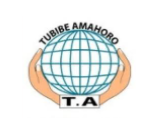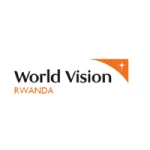TUBIBE AMAHORO is a non-governmental organization dedicated to promoting human rights, socioeconomic progress, and gender equality in Rwanda.
Website:
TERMS OF REFERENCE TO RECRUIT A RADIO HELPING IN RADIO CALL IN AND LIVE DISTRICT FORUM DIALOGUE
PROJECT: INDI NTAMBWE MU KWIYUBAKIRA IGIHUGU-INKI Project.
Background to TUBIBE AMAHORO (TA)
Tubibe Amahoro Association (TA) is a community-based, a human rights promoter and community development led organization founded in 1995 right after the genocide against the Tutsi in Rwanda by some of the survivors and human rights defenders. TA was granted the legal status through the Ministerial Order no 41/08.11 of 31/03/2011 found in official gazette (OG) no 33 of 15/08/2011. TA dreams to “Achieve a society of equity in which laws and human rights are respected by everyone” and, therefore, defining its mission as “To promote respect for human rights and integral socioeconomic progress of Rwandan population by emphasizing civic participation, access to justice, sustainable community livelihood and gender promotion.” Thus, based on that strategic orientation, TA basically strives for the fulfilment of the citizens’ rights in its all aspects [human dignity, civil rights, economic rights, justice, equality, positive peace and unity among Rwandans.
Strategically, TA’s interventions articulate on four (4) mains pillars:
(1) civil participation, consisting of influencing policies, and building capacities of the right holders to effectively participate to the fulfilment of their civil rights, influencing service providers to account…;
(2) access to justice, comprising projects of raising awareness of the communities on policies, laws, rights…for them to claim for them where they are violated or unfulfilled; projects to provide assistance to rights violations victims especially the victims of GBV through psychosocial centres (IWACU Centre; RUHUKA Centre), trainings of families living in domestic violence…and eventually, those providing legal aid services;
(3) Environmental protection and Rural community development, comprising projects focusing on agroecology, projects working on climate change (environmental justice), and projects aimed at supporting local communities to engage in small projects generating income;
(4) gender promotion pillar, a programme consisting of sensitizations and campaigns aiming at raising awareness on gender equality, unpaid work redistribution, rethinking on our traditional cultural beliefs, habits and attitudes nurturing gendered inequalities.
Tubibe Amahoro currently operates in 9 districts of Rwanda with respective local offices; those being Karongi [head office], Rutsiro, Ngororero, Burera, Nyanza, Gisagara, Nyamagabe, and Nyaruguru. TA works with more than 1500 community volunteers Comprising Governance Focal Persons (GFPs), Paralegals, and Counsellors; all coordinated by personnel varying between 10 and 30 staff.
To achieve its mission, TA has always worked with core support of its members and donors like Norwegian People’s Aid (NPA), ActionAid International-Rwanda (AAR), Ambassade de France in Rwanda (French Embassy), UNDP/Rwanda Governance Board (RGB), RCN-Justice et démocratie, Swiss Agency for Development and Cooperation (SDC).
In this respect; Tubibe Amahoro jointly with NPA_Rwanda gained a fund from the British High Commission (BHC)FCDOGovUK to implement “INDI NTAMBWE MU KWIYUBAKIRA IGIHUGU-INKI Project” related to Rwandan decentralization policy. It is a piloting project (July 2024-March 2025) lining with TA’s 1st and 3rh Pillars (as described above). One of the outcomes to achieve in INKI priority 2 is Citizens and CBOs have increased constructive engagement with public policy processes to confidently hold power holders to account on policy performance, decisions and service delivery.
Within this context, Rwandan country has implemented various programs to strengthen decentralization, including capacity-building for local leaders, fiscal decentralization to allocate resources effectively, and establishing systems for citizen feedback and participation which has been credited with contributing to the country’s rapid development, especially in areas such as healthcare, education, infrastructure, agriculture and poverty reduction. The decentralization implementation process has been successful in reinforcing institutional capacity building in participatory (bottom-up) planning, budgeting and monitoring and evaluation
But despite its successes, challenges remain, such as ensuring equitable resource allocation across districts, maintaining consistent service delivery standards, and balancing local autonomy with national development goals, coordination and consistency between national policies and local implementation can be challenging ,political interference or lack of autonomy for local governments, impacting decision-making processes and resistance to change of some stakeholders at central and local level still persists and creates important distortions in the dynamics of decentralization implementation
Using the decentralisation as the main entry point of engagement, INKI project will seek to contribute towards addressing the below long-standing policy issues among others that the country is facing:
- Weak knowledge and understanding of government policy choices by citizens
- Limited institutional compliance with the national decentralisation principles
- A limited culture of environmental and social justice safeguarding and accountability for liabilities
Agriculture sector decentralization being a complex topic and new technical expertise area, TA is taking lead on agriculture policy literacy amplification through facilitating periodical engagements between different segments of the local populations with local decision-makers and local service providers, including the private sector. Generally, the agricultural sector in Rwanda plays a crucial role in the development of the country, providing food security, livelihoods, and economic growth. However, the effectiveness of agricultural policies in achieving these goals often depends on their relevance and alignment with the needs and priorities of the communities they are intended to serve. To ensure that agricultural policies are responsive and impactful, TA is planning to conduct innovative policy literacy mass campaigns through radio dialogue on agriculture priority policy areas together feedback from the people who are directly affected by them using the agriculture radio call in.
1) TA will collaborate with radio stations(either local community or others) to host discussions about agriculture policies, inviting agricultural policy experts, policy makers, government official and researcher to participate through answering to listener questions about agricultural policies within 5 district(Karongi,Musanze,Ngororero, Gisagara and Rutsiro) under INKI project where farmers and rural communities will gain greater exposure to agricultural policies, their implications, and potential benefits, hearing from experts, policymakers, and researchers directly .
Also; Tubibe Amahoro has gained a financial support from NPA_Rwandato implement “PUBLIC POLICY INFORMATION, MONITORING AND ADVOCACY (PPIMMA) Project” related to citizen participation . One of the outcomes to achieve in PPIMA project is Local and national government have formulated policies and plans that reflect the concerns raised by citizens and gender equality considerations.
Citizens’ participation in influencing public decisions affects and reflects individual and collective interests. However, a lack of self-confidence among local citizens coupled with people’s and local organizations’ willingness to participate in planning and service delivery may actively or inadvertently discourage citizens’ involvement. The long-run established project “Public Policy Information, Monitoring, and Advocacy (PPIMA)” is coordinated by the Norwegian People’s Aid and is implemented by Rwandan Civil Societies Organizations (CSOs) presently working at National and District levels. Through PPIMA, the NPA supports CSOs and they both collaborate to strengthen Rwandan CSOs and citizens as well as actively participate and engage in providing their inputs towards the formulation and implementation of National policies, District plans, and service delivery to citizens. PPIMA is primarily aimed at encouraging the deliverance of improved services to citizens and the promotion of inclusiveness in public policy affairs. To ensure that agricultural policies are responsive and impactful, TA is planning to conduct innovative policy literacy mass campaigns through radio dialogue and live district dialogue forum on citizen priorities/ issues generated through community score card(CSC) process and community feedback from the project stakeholder on field (Burera,Ngororero, Nyamagabe , Nyaruguru and Rutsiro district) and broadcasted inviting government official and citizen live to participate through asking and answering questions about communities issues .In this regard:
2) TA will collaborate with radio stations (either local community or others) to host discussions about different topic such as governance, in hire program for citizens to raise community issues in Burera,Ngororero,Nyamagabe ,Nyaruguru and Rutsiro district under PPIMA project inviting government official to participate through answering to listener questions about communities issues .
3) TA will collaborate with radio stations (either local community or others) to host a live District Dialogue Forum (broadcasted DDF) under PPIMA project on citizen priorities/ issues generated through CSC process and community feedback from the project stakeholder on field (Burera,Ngororero, Nyamagabe , Nyaruguru and Rutsiro district) and broadcasted inviting government official and citizen live to participate through asking and answering questions about communities issues .
Table summarizing the activity
| Items | Duration | Frequency |
| Radio call in hire program for citizens to raise community issues related to different topics such to Governance,….in Burera,Ngororero,Nyamagabe ,Nyaruguru and Rutsiro district under PPIMA project | 1h | 1 radio call in per each district |
| Live District Dialogue Forum (broadcasted DDF) on citizen priorities/ issues generated through CSC process and community feedback from the project stakeholder on field (Burera,Ngororero, Nyamagabe , Nyaruguru and Rutsiro district) and broadcasted under PPIMA project | Maximum 2h | 1 Live district dialogue Forum per each district |
| Radio call in hire program in agriculture call in for citizens to raise community issues related to different topics such to agriculture decentralisation policy in Karongi,Musanze,Ngororero, Gisagara and Rutsiro district under INKI project | 1h | 3 radio call in all district |
It is in this regards that Tubibe Amahoro Organization would like to invite qualified Media Radio station to submit their financial Proposals for facilitating to conduct those radio call in and Live district dialogue forum under INKI and PPIMA project at Tubibe Amahoro email. Participation to the competition is open on equal conditions to all Media radio station fulfilling requirements.
Technical and financial proposals
Detailed FINANCIAL proposals must be submitted in English in a PDF document.
The following information shall be disclosed as part of the financial proposal:
Administrative documents:
- TIN/VAT certificate;
- Company registration certificate;
- Proof of EBM invoice.
N.B: Withholding tax of 15% will be considered if the company is not registered with RRA .
The financial proposal should be submitted in Rwf with sufficient details on each activity of radio call in and live district dialogue forum broadcasted to facilitate cost analysis.
Production Timeline
The radio station who will award this tender must start those radio call in in the end of this November 2024.
The financial proposal of the selected candidate will be reviewed during contract negotiations to determine the final contract price.
How to apply
Application letter with financial proposal addressed to the Executive Secretary of TUBIBE AMAHORO organization must be submitted not later than Thursday, November 21th,2024 at 5:00Pm; you should mention “Application to the consultancy to radio call in and live district dialogue forum under INKI and PPIMA project” on the following email: sowpeace@gmail.com .
All candidate will be notified. In case of enquiries, please don’t hesitate to contact us via email: sowpeace@gmail.com or a direct call to TA Program Manager: 0785830876.
You are requested to adhere to the deadline, proposals submitted after the deadline will be automatically rejected and returned unopened to the bidder.
Done at Karongi, November 13th,2024.
Pierre Célestin KABANO
Executive Secretary of TUBIBE AMAHORO





